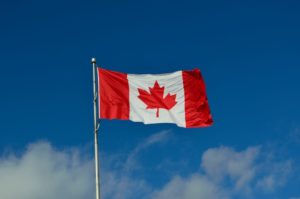Canadian Accountability Experts Propose Comprehensive “Hack” Promoting Increased Transparency and Support for Whistleblowers

A group of prominent accountability experts have come up with a comprehensive proposal designed to increase transparency and whistleblower protections in Canada. The Canadian COVID-19 Accountability Group (CCAG), comprised of former whistleblowers and other experts from academia, law, policing and journalism, was created in response to Constantine Cannon’s FT Innovative Lawyers Global Legal Hackathon challenge. The challenge seeks hacks that remove “the legal, technological and cultural barriers that prevent whistleblowers from connecting with oversight channels.” CCAG’s proposal advocates for the expansion of open records laws, increased whistleblower protections and compensation, government campaigns to educate the public on how to report fraud and whistleblower rights, and the creation of a COVID‑19 ombudsperson.
Specifically, CCAG proposes certain categories of factual documents should be public by default and the government should publicly release these documents, without redaction, within 15 days of their completion. These categories include:
- Inspection reports, audits, statistics, and similar records related to the compliance and enforcement of government environmental, consumer, health, and safety regulations;
- Scientific and public health research reports, studies, statistics, and similar records that have been prepared by or submitted to public bodies; and
- Contracts, grants, and loans provided to companies and organizations, including records related to the conditions and values of those agreements, as well as whether they were fulfilled.
The proposal also includes expanding the existing whistleblower protections to (i) to cover any situation where the public interest could be impacted, (ii) allow additional ways to report fraud (including anonymously), and (iii) implement measures to prevent retaliation, including by making it easier for whistleblower to seek redress in the courts. In addition, a private sector whistleblower incentive of 10%-30% of revenue recovered could serve as insurance for the significant risks whistleblower take to expose fraud. Along with these expansions, CCAG encourages the federal and provincial government to undertake whistleblower awareness campaigns that would both educate the public on how to report fraud and reduce the cultural stigma against whistleblowing. Finally, CCAG proposes the federal government establish an independent COVID-19 ombudsperson office that can serve as a resource for departments handling the government’s fraud response and fraud detection/reduction efforts.
CCAG’s white paper highlights how Canada’s political and cultural climate could benefit from these targeted solutions. International whistleblowing expert Tom Devine called Canada’s whistleblower laws “a tissue paper shield,” despite the fact that nearly all its provinces and territories have legislated public sector whistleblower protections. These existing laws have not prevented whistleblowers from suffering retaliation, an issue further exacerbated by the reticence of Canadian public bodies to provide information to the public. This reticence even extends to critical information about the distribution of COVID-19 cases and the government’s plans for addressing the pandemic. CCAG’s proposal, which is already gaining traction in the press, also hopes to spur a cultural shift in how whistleblowers are perceived in Canada. Prime Minister Trudeau and the Treasury Board President Duclos have already responded to CCAG’s proposal. Duclos encouraged ministers to proactively publish COVID-19 information as soon as possible, stating “I would like to remind you of the continuing importance of providing transparency and accountability to Canadians, even in times of crisis.”
Read More:
- The Financial Times Innovative Lawyers – Global Legal Hackathon Challenge
- Constantine Cannon’s Hackathon Challenge: Whistleblowers as First Responders: How to Stem the Tide of Fraud and Corruption in the Maelstrom of Covid-19
- Whistleblowers and COVID-19 Response Fraud
- The Constantine Cannon Whistleblower Team
- Contact Us
Tagged in: COVID-19, Importance of Whistleblowers, Whistleblower Protection Laws,